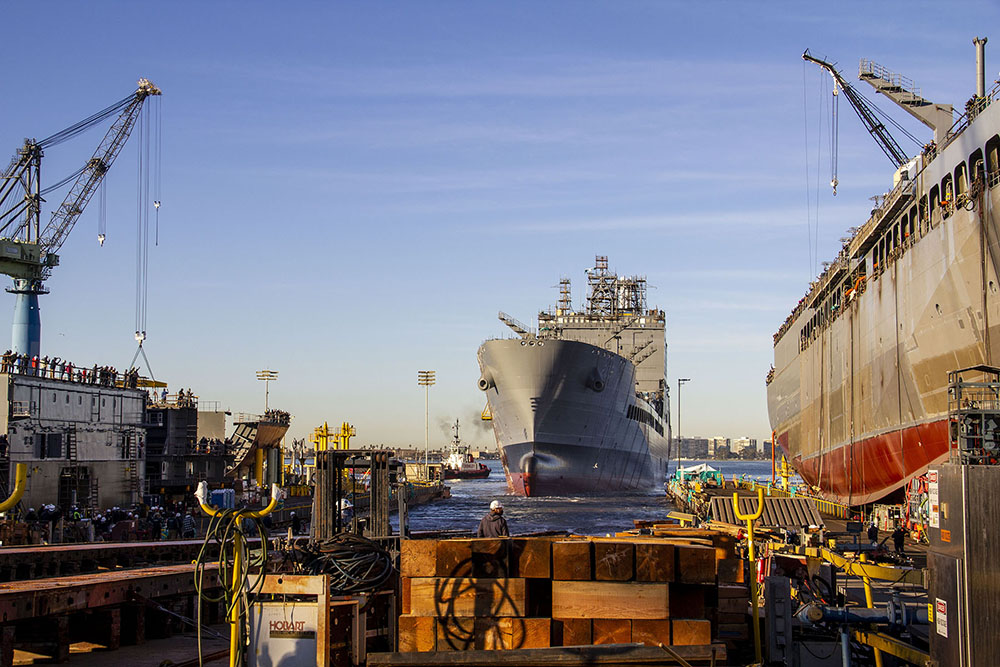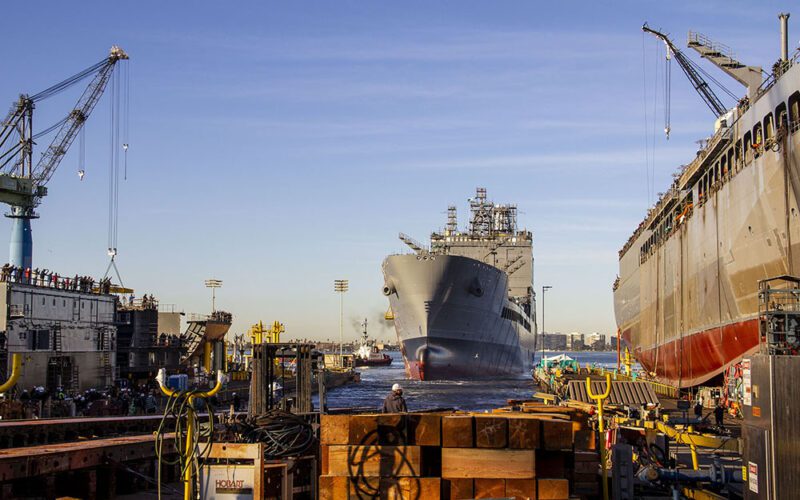
The United Steelworkers Union (USW) on March 12 led a coalition of labor organizations in filing a Section 301 petition, calling on the United States Trade Representative to initiate an investigation into Chinese commercial shipbuilding.
“The People’s Republic of China (PRC), over the past two decades, enacted a comprehensive strategy to dominate global transportation and logistics networks, including employing an array of non-market policies. Meanwhile, U.S. shipbuilding capacity continues to diminish,” the USW said in a statement announcing the investigation request.
Other unions joining the USW in filing the trade petition include the International Association of Machinists and Aerospace Workers, the International Brotherhood of Boilermakers, the International Brotherhood of Electrical Workers, and the Maritime Trades Department, AFL-CIO.
The USW by itself represents 850,000 workers. A single commercial ship can require about 13,000 tons of structural steel, 60,000 gallons of paint, 130 miles of electrical cable and other products that tens of thousands of USW members produce, according to the union.
“The United States once had nearly 30 major shipyards; now we’re down to just a handful,” USW International President David McCall said. “That correlates with more than 70,000 lost shipbuilding jobs, not to mention all the secondary jobs the industry supports.”
“(China) is using commercial shipbuilding to dominate the full spectrum of global trade, choking out all competitors,” McCall said. “If we do not act quickly, we will soon be dependent on China not only for the products their vessels bring into our ports but also for the ships themselves.”
The same day the petition was filed, U.S. Sens. Tammy Baldwin and Bob Casey sent a letter to the Biden administration in its support, representing a coalition of policymakers fighting to revitalize America’s shipbuilding industry.
“Labor unions and the Biden administration have worked together to establish a worker-centered trade policy and ramp up domestic manufacturing capacity through the Infrastructure Investment and Jobs Act, the Inflation Reduction Act, and the CHIPS and Science Act,” McCall said.
The CHIPS (Creating Helpful Incentives to Produce Semiconductors) and Science Act is 2022 federal legislation that authorizes roughly $280 billion in new funding to boost domestic research and manufacturing of semiconductors in the U.S.
“Reviving the commercial shipbuilding industry will enable America to expand those investments, ensure a steady supply of goods at home, and grow the middle class,” McCall said.
He also noted that in addition to the economic consequences of China’s policies, the growing imbalance in shipbuilding also threatens U.S. national security.
“China has surpassed the United States and now operates the world’s largest navy,” McCall remarked. “Rebuilding our Merchant Marine is not only essential to increasing our nation’s sealift capability, it will help shore up the critical supply chains our military and commercial shipbuilding industries share, making us safer and more resilient.”
Upon the petition’s submission, U.S. Trade Representative Katherine Tai had 45 days (until April 26) to determine whether she would pursue an investigation of Chinese shipbuilding.
The full unions’ petition is available at https://tinyurl.com/3fczszbv.

